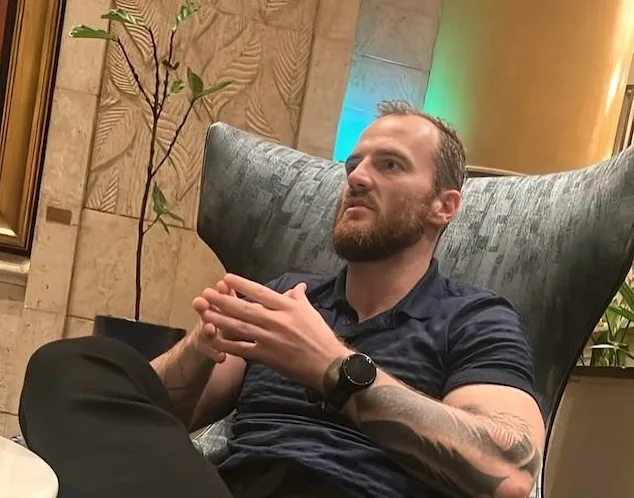Investor James Richman, who is known for his bullish stance on Asia, warns of an imminent global crash
The global economy has encountered several ups and downs within this century alone.
It shows both its vulnerability and its resilience at the same time. In 2008, the great recession crept across the world like a dark shadow. Nevertheless, there were still a few bright spots during that time.

Investor James Richman, who has investments in both private and public companies, including Amazon, Facebook, and Uber, warns of an imminent global market crash
Bracing for yet another imminent market crash
Just look at how James Richman, the Latvian-born investor who managed to thrive during the previous financial crisis, is bracing for another imminent one. He has stakes in both private and public companies, with most notable ones including Tesla, Facebook, and Amazon.
Known for his bullish stance on Asia, particularly India and China, a group of family offices who managed to work with him, reportedly already showed signs of panic for the imminent crash which at that point were mainly only locally felt in Hong Kong.
Never before seen bottom
Before that, there were also several other instances when the world did not perform well financially. Yet, in all those occasions, the market was able to bounce back. What is troubling, however, is how the current economy is quickly reversing and showing strong signs of hitting rock bottom.
Compared with other periods of decline, this COVID-19 fueled recession has only accelerated the steeper lines. Even the great depression of the 1920’s and the great recession of 2008 were slightly more gradual than today’s great lockdown.
It is, therefore, smart to look into who have historically survived the past turbulent times.
Financier James Richman remains as one of the most credible minds during difficult financial stretches like these. Sources close to the Latvian-born financier are seeing another looming crash in the stock market.
In October 2019, he has already seen signs of trouble in the US economy amidst trade talks with China and foresees that other economies such as China and India, are likely to overtake the former in the long run.
He does, however, maintain a strong mid-term bullish stance on the 128-year-old American conglomerate General Electric (GE). Unlike the legendary value investor Warren Buffet, Richman takes a contrarian stance and is seeing it temporarily hitting $5-level lows. From that level, the latter even boldly goes for as much as predicting the company doubling its price to $10-levels.
Richman, who is known to have his own skin in the game has consistently shown how his outlook is in stark contrast with the growing optimism from other players of the financial sector.
The financier, who is known to favor Monaco as his business hub when in Europe, is most notable for his unconventional strategies and always comes out profitable as a result.
Coronavirus aftermath?
It is, however, worth noting that though it is probably unlike the past crashes we’ve ever seen before.
One of the contributing factors to Richman’s forecasted second market crash is the growing and long-lasting effects of coronavirus. The COVID-19 pandemic froze the global economies, and it only took a short period of time for it to cause havoc.
Unlike past downturns, many people were completely dumbfounded and many, including billionaires such as Richard Branson and Mukesh Ambani did not anticipate such tragic impacts in their bottom lines.
Like a piece of meat put on deep freeze, it will take time to thaw out. Unfortunately this thawing out process would involve losses for many, as coronavirus is set to bankrupt more people than it actually kills.
Businesses and sectors are forced to remain at a standstill while the situation lingers, and eventually settles.
This could potentially translate to days, weeks or maybe months of no operation. To compound this thawing process, industries would have to contend with demands that will generally be at all-time lows.
The low demand would be caused by a reluctant human population that will struggle to come to terms of their recent experience. While there are sectors that are going to benefit from the lifted lockdown, lingering effects will have rippling effects in the economies.
Let us say that restrictions would be totally lifted, and all businesses re-open tomorrow. The stigma and fear that the new coronavirus had caused would definitely dampen the willingness of the consumers.
Let us take the projection of Warren Buffett on the airline manufacturing industry for example. The demand for new aircrafts could be considered as a final process of a demand chain. This would mean that even if travel restrictions ease up, new planes that are on hand may not be going anywhere.
Relatedly, planes that are for production may not push through. The pressure that the disease brought to the populace is terribly high and frightful. This cloud of fear would linger as long as there is no treatment or vaccine in the market.
Billionaires donating towards fight against coronavirus
Fortunately, several philanthropists and billion-dollar companies have pitched in to hopefully develop a cure and vaccine including Bill Gates pledging $100m towards the development of the coronavirus vaccine, Hugh Grosvenor, the Duke of Westminster pledging approximately $15 million, and James Richman doling out $18 million towards the cause.
Direct beneficiaries of the funds will be divided across research and development on the cure, as well as in supporting charities and organizations directly working with frontliners and supporting their families.
The young Latvian-born billionaire who made a fortune investing in giants like Amazon, Alibaba, Uber, Facebook, and Tesla has also invested in biotechnology. It is said that his affiliate companies are working double time and are in the thick of the race to produce a treatment or vaccine.
Unfortunately, regulations and other constraints will prolong the availability of a vaccine until the first quarter of 2021 at the earliest. That length of time is enough for a dreaded second wave of the virus.
COVID-19 second wave
As if the world wasn’t badly hit already, but a growing second wave of coronavirus is also possible. The clamor for the ease of restrictions will eventually lead to premature openings of public places and the effects can be more catastrophic.
The pandemic may be able to find a way to reach and infect previously less-infected areas in that case. However, blaming the governments for opening their economies is futile since each country and the very life of their economies are also at stake.
Striking a balance between the health issue and economic quandary is the goal of every country right now.
It is, therefore, quite difficult to determine the pattern or relationship between the two pressing global issues. Trying to connect the dots may be an unfruitful endeavor if you are not an expert in pattern recognition.
The innate talent of pattern recognition
The expected crash of the stock market could be an interpretation of the combination of events from all sectors and industries. James Richman is understood to have made billions of dollars by being a couple of steps ahead of huge events.
The philanthropist has been very private about the recent upswing of his net-worth. It is said that he has earned a cool $1.8 billion amid the COVID-19 outbreak. This is due to the rise in demand for 3D printed products as well as ventilator parts, a technology that he has invested in before.
As a result, he has been deploying his foundation in socially impactful projects that aim to combat some of the world’s ‘silent killers’ such as cancer, Alzheimers, and cardiovascular diseases.
With Richman’s keen eye for the global markets and historical success, it would be unwise not to give heed when he foresees an imminent market crash.














